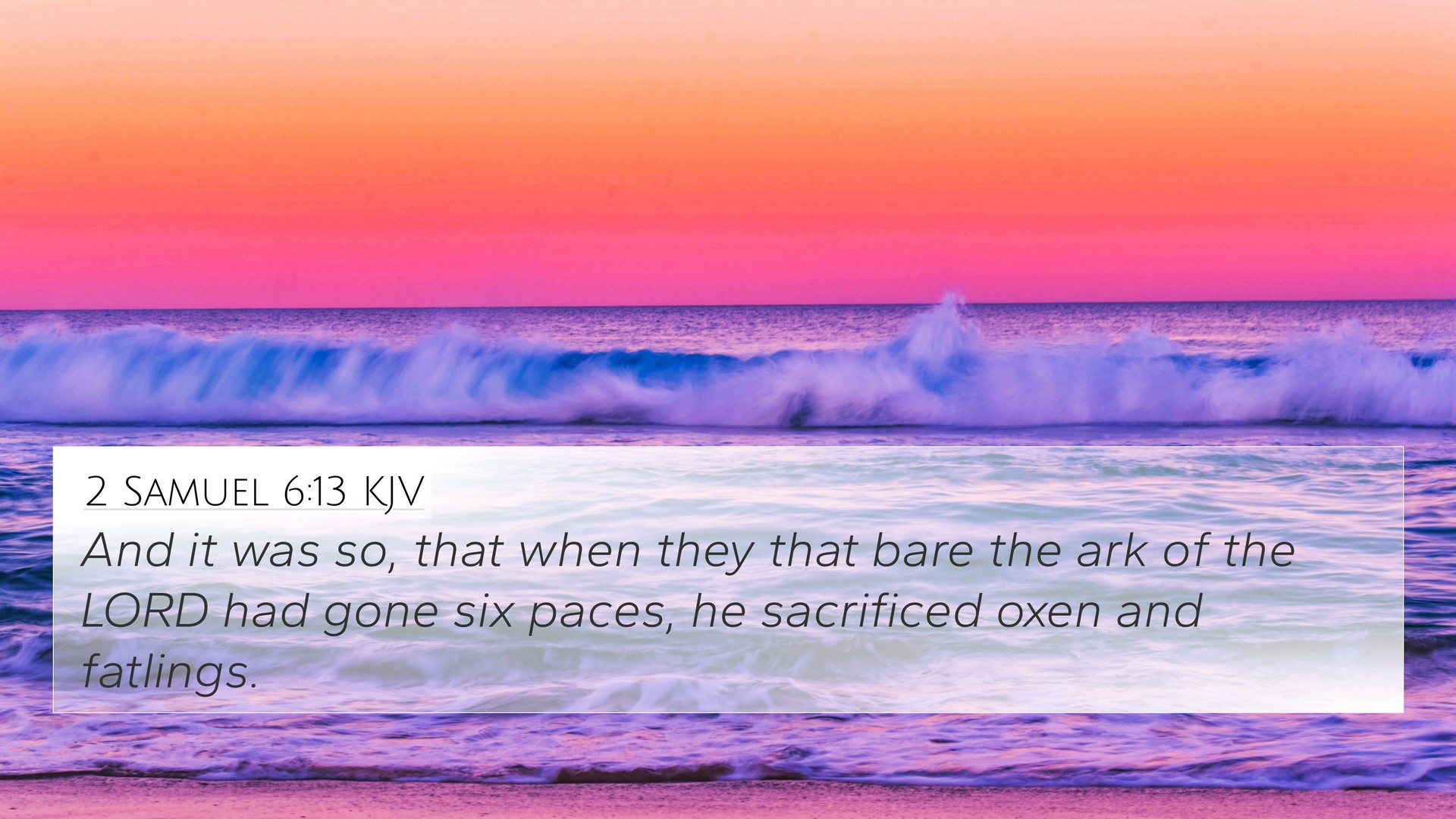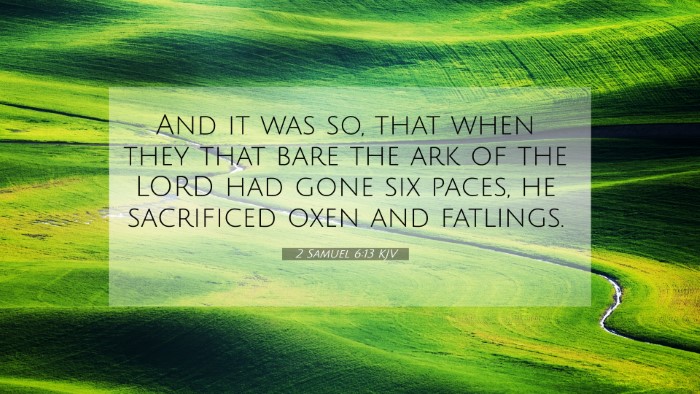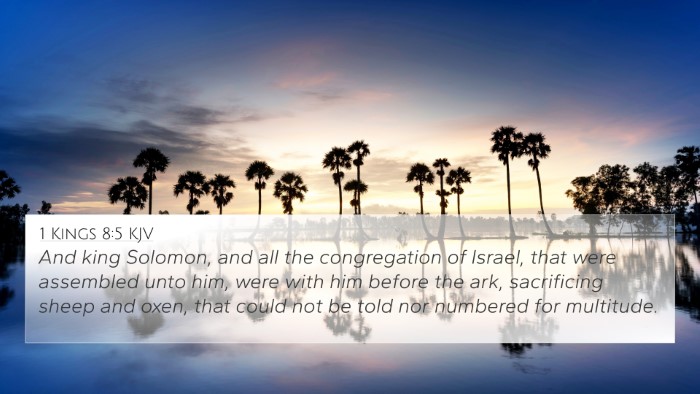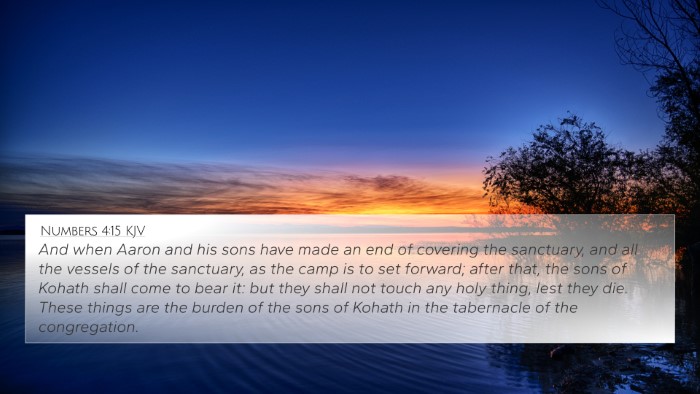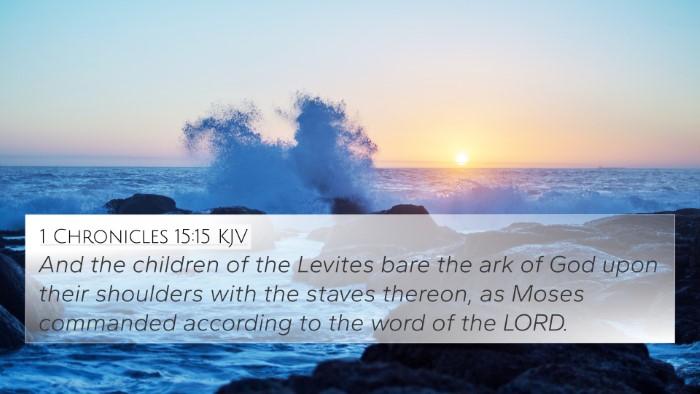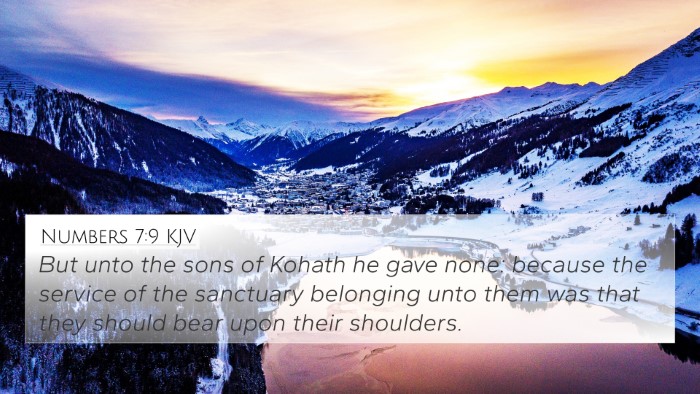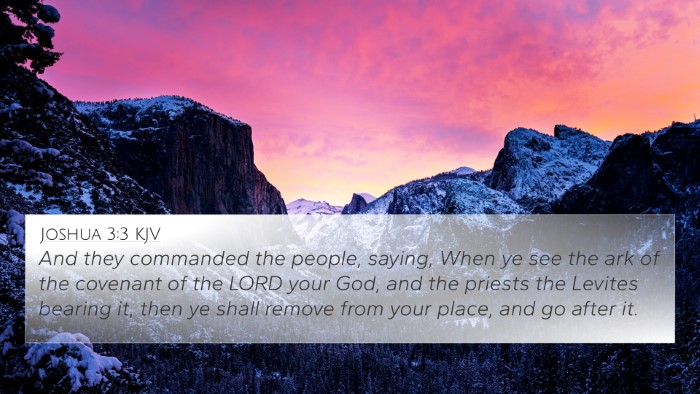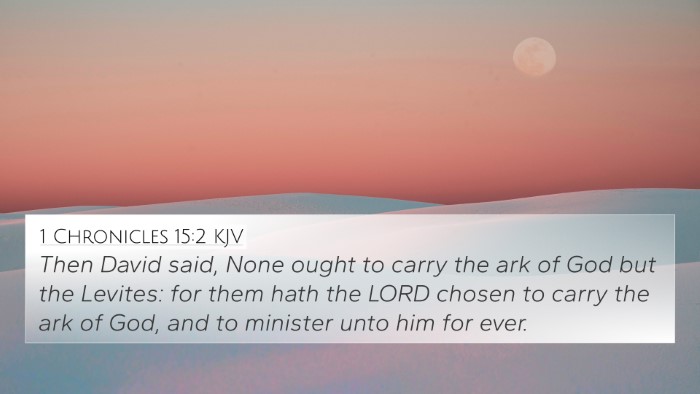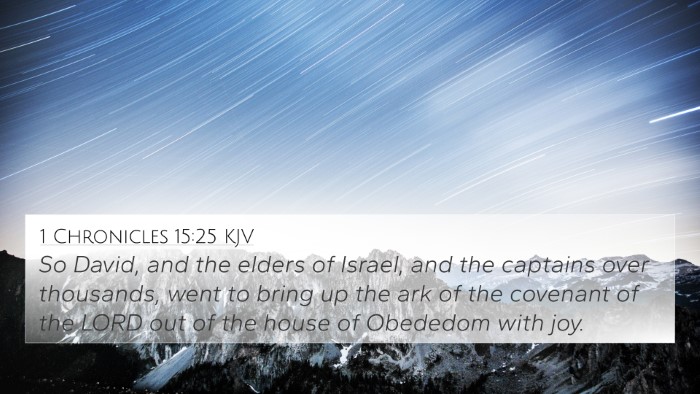Understanding 2 Samuel 6:13
Verse: 2 Samuel 6:13 states, "And it was so, that when they bare the ark of the Lord had gone six paces, he sacrificed oxen and fatlings." This passage reflects a significant moment in biblical history, centered on the return of the Ark of the Covenant to Jerusalem.
Contextual Background
The Ark of the Covenant represented God's presence among His people. Its return was a celebration of divine favor and restoration, showing that God desires to dwell with His people. The actions of David in this verse highlight the importance of worship and reverence in approaching God.
Commentary Insights
- Matthew Henry: Henry emphasizes the celebratory nature of David's actions. By sacrificing after every six paces, David showed a heart filled with gratitude and reverence. This act points to the necessity of worship in our spiritual journey.
- Albert Barnes: Barnes states that David's sacrifices signified joy and devotion. By stopping to worship, David acknowledges that all success is due to the Lord's guidance. His actions symbolize a commitment to leading Israel in worship.
- Adam Clarke: Clarke notes the symbolic meaning behind the number six, representing imperfection and incompleteness. As David progresses, he acknowledges the need for continual divine assistance and God's grace along the journey.
Thematic Connections
This verse not only underscores David's devotion but also invites further biblical connections:
- Exodus 25:22: The Lord promises to meet with His people at the mercy seat, emphasizing the sacredness of the Ark.
- 1 Chronicles 15:26: Discusses the necessity of divine assistance when moving the Ark, showcasing God’s active role in guiding His people.
- Psalms 68:1: Celebratory tones of God’s presence among His people, similar to the joy expressed during the Ark’s transport.
- 1 Samuel 6:7: The importance of treating holy things with reverence is reiterated in the context of the Ark's history.
- Hebrews 9:4: Highlights the significance and contents of the Ark, linking the Old Covenant with the New.
- Philippians 4:6-7: Encourages believers to approach God with thankfulness, mirroring the essence of David’s sacrifices.
- Leviticus 16:5: Details sacrificial offerings key for atonement, which parallel David’s actions of honoring God through sacrifices.
Applications for Today
The act of worship demonstrated by David remains a vital practice for believers today:
- Recognizing the importance of gratitude in one's spiritual life.
- Understanding the need for continual worship through varying life's journeys.
- Following David's example in leading communities in expressions of faith and joy.
Bikeverse Cross-References
The following Bible verses can be cross-referenced to understand deeper connections:
- Deuteronomy 12:5-7 - The place of worship and offerings.
- 2 Samuel 24:24 - The significance of sacrificial giving.
- Romans 12:1 - Presenting ourselves as living sacrifices.
- John 4:24 - The call for worshiping in spirit and truth.
Conclusion
2 Samuel 6:13 serves as a reminder of God's graciousness and the joyful obligations we have towards worship. David's actions encouraging sacrifices mark our understanding of worship being an essential part of the believer’s life. By examining this verse alongside others, one gains insight into the thematic continuity of scripture and its broader implications on faith and practice.
